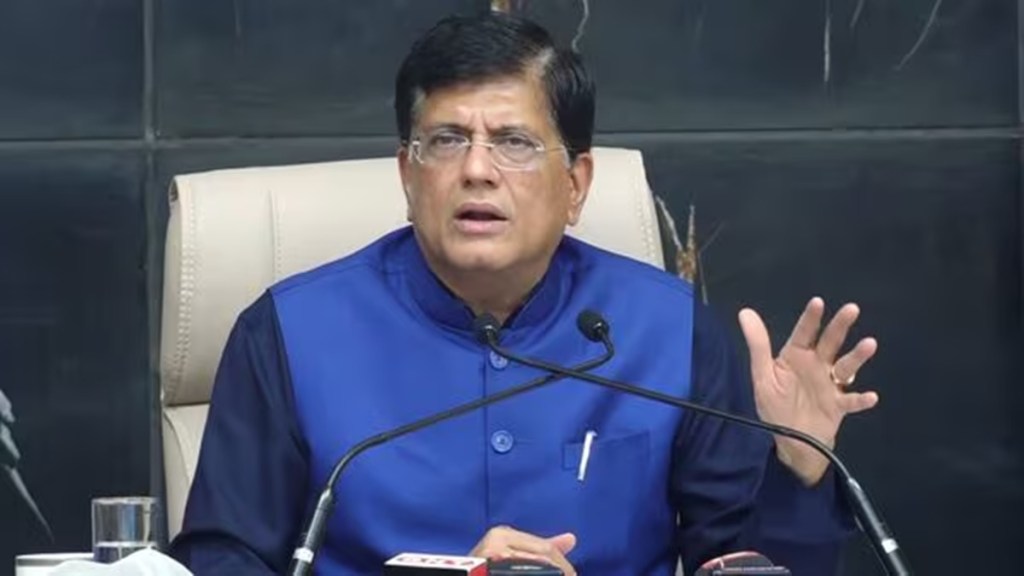India has the flexibility and ability to reduce tariffs for the UK, commerce minister Piyush Goyal said on Monday as both the countries resumed negotiations for the long-pending free trade agreement (FTA). The target is to grow merchandise trade between India and the UK threefold in the next 10 years.
The talks with UK’s new Labour Party-led government assume significance against the backdrop of US President Donald Trump’s moves to upend the world trade order with tariff threats. European Commission president Ursula von der Leyen is also visiting India this week for trade talks.
“Many of the tariffs that India has are really to protect us from non-market economies, non- transparent economies, or economies which are known for predatory pricing or dumping of goods. And I think between the UK and India, we have much more flexibility and ability to significantly reduce tariffs to make business more competitive between the two countries,” Goyal said at a joint press conference with UK secretary of state for business and trade Jonathan Reynolds.
Both sides did not give a time frame for the conclusion of negotiations on FTA, which have been in progress since January 2022. “We will have speed but not haste,” Goyal said.
While the average tariff on goods imported from India into the UK is 4.2%, the average tariff in India on goods imported from the UK is 14.6%.
“This will be a path-breaking free trade agreement, which will give businesses and people of both countries huge opportunities to grow our current $20-billion bilateral trade in merchandise to probably two- to threefold in the next 10 years,” he added. In recent months, India has sped up rationalisation of its customs duty structure and brought down peak tariffs from to 70% from 125%.
While the UK is asking for lower duties on automobiles, electric vehicles, whisky and national treatment for its services sector in the FTA, India is seeking greater access to its labour-intensive manufacturing sector to the UK market, apart from greater flexibility in grant of visas to its service professionals. In the agriculture sector, India has conveyed its sensitivities to the UK.
The negotiations on the FTA, which began in January 2022, were suspended for eight months due to elections in both countries. Before the negotiators from both countries met, Goyal and Reynolds had a three-hour long bilateral meeting.
After the meeting, both sides seem to be coming to a common view on the issue of business visas, which has been a sticking point so far. The governments in the UK have taken a tough stance on immigration. Currently, the UK’s inter-company transfer visas as well as skilled worker and investor visas are counted towards legal immigration figures.
Former secretary of trade and business Kemi Badenoch had earlier said that India tried to bring in migration in the FTA and it was one of the reasons that the UK did not sign it.
Goyal clarified that immigration has never been part of any FTA negotiations. “As we are opening up our economies to attract more investments and opportunities and for all of these business visas will be required. They will be linked to investments and the services that are going to opened. I do not see any difficulty in that,” Goyal said “Business mobility is an ask from the UK in trade negotiations,” the UK trade minister said.
Goyal also termed the short-term work visas that Indian students get in some countries like Australia on completing their education there as business or work visas.
Apart from FTA, both countries are also negotiating a bilateral investment treaty (BIT) and a social security agreement formally called the Double Contribution Convention Agreement. Asked whether BIT and FTA will be signed at the same time, Goyal said all options are on the table.
The social security agreement that India and the UK are negotiating will exempt Indians on temporary work visas in the UK from social security contributions as they derive no benefit out of them once they come back to India. There could also be some kind of a deal under the social security agreement on refund of social security contributions Indians have already made.

